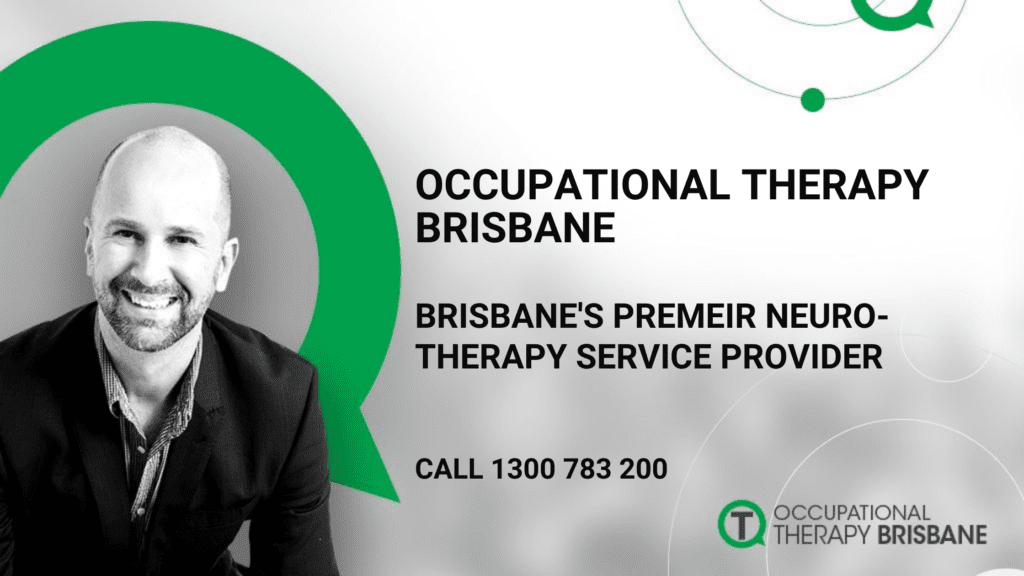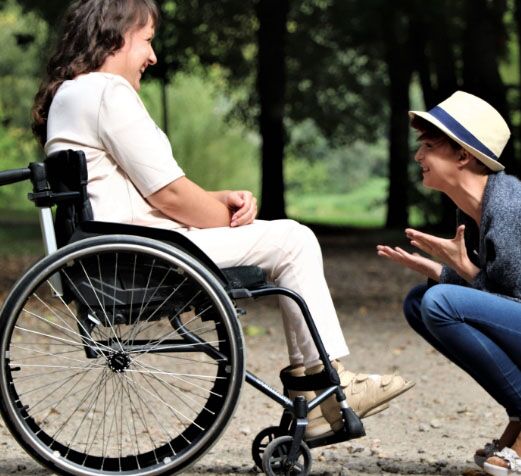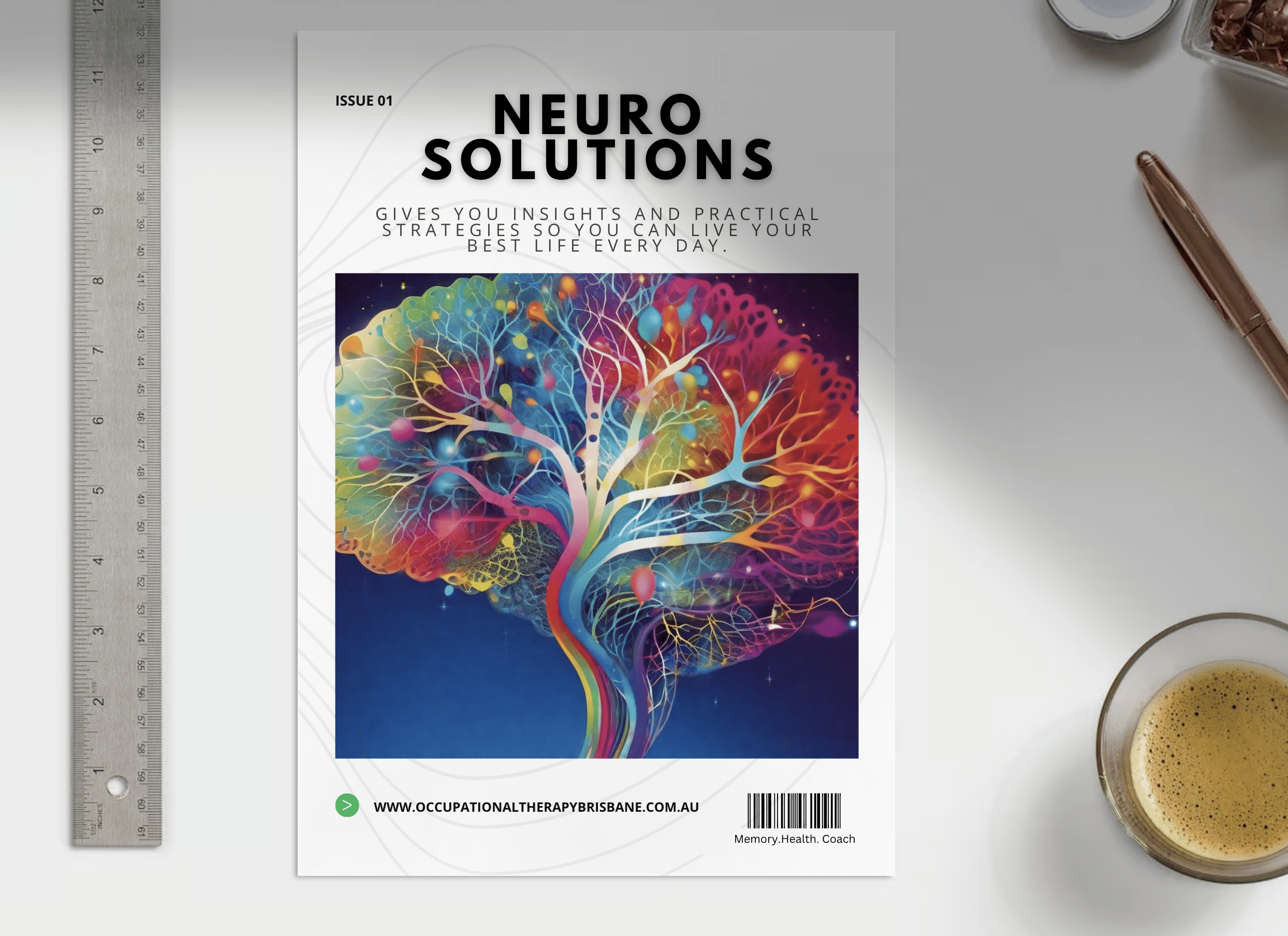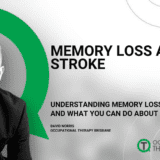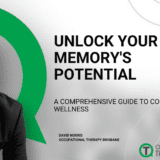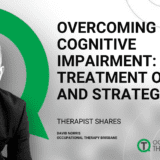 Unleash Your Brain Power: 10 Effective Techniques for Memory Improvement
Unleash Your Brain Power: 10 Effective Techniques for Memory Improvement
Are you tired of struggling with memory lapses and forgetfulness?
Here’s how to stay razor-sharp and enjoy a life filled with unforgettable moments. In this comprehensive guide, we’ll share proven memory improvement strategies and practical tips to elevate cognitive function, to help prevent memory loss.
Get ready to harness the power of your mind and experience the joys of a vibrant memory at any age.

The Significance of Memory: Unveiling the Inner Workings of the Mind
Memory, an intricate process involving the encoding, storage, and retrieval of experiences and knowledge, holds profound importance in our lives. Being a health professional, I’m well aware of the profound concerns and curiosity that revolve around memory and its influence on our general well-being.
Allow me to emphasize the immense significance of memory.
It defines our very essence and shapes our identities. We classify memories into distinct groups. Let’s look differing types of memory briefly.
What Are Explicit Memories?
Explicit memories are the conscious recollections of past events, bring forth a myriad of emotions and insights.
Whether it be the warmth of sharing a cup of coffee with a dear friend, the vivid memory of a childhood fright caused by a neighbor’s dog, or the factual understanding that spiders possess eight legs, these explicit memories contribute to the tapestry of our lives.
They are quite different from the next group of memories
What Are Implicit Memories?
Implicit memories are recollections that enable us to perform everyday tasks effortlessly. From speaking and articulating words using “mouth , tongue and face movement memories” to coordinating our movements and maintaining balance while walking, implicit memories underpin our functional abilities.
What Happens When The Ability to Recall Or Create Memory Is Affected?
No doubt, it could impact your ability to communicate effectively, identify potential dangers, and navigate the intricacies of the world around us.
In essence, for some people where memory health has changed, they have difficulty with doing the necessary skills and acquiring knowledge to thrive in everyday environments.
We see this commonly in the memory health hub
At OT Brisbane we’re super appreciative of the importance of memory in maintaining cognitive function and overall well-being. That’s why we set up the Memory Health Hub in the first place.

Memory Risk: Across Your Life Here’s How Your Memory Is Under Threat
The renowned medical journal, The Lancet, conducted a comprehensive study on the risk factors associated with memory loss and dementia.
They identified key risk factors across different stages of life. From the level of your education to health conditions like hypertension, obesity, hearing loss, traumatic brain injury, and lastly lifestyle factors of alcohol misuse, and smoking as being major risk that increases a person’s risk for memory loss.
By addressing these, it’s possible to reduce your personal lifetime risk of dementia by nearly 40%.
That’s a winning lottery ticket right there, yet most people want use it.
Other significant contributors to dementia risk are physical inactivity, sleep disorders, depression, social isolation and diabetes.
The Lancet’s research provides valuable guidance for healthcare professionals and individuals in preventing memory loss and dementia.
All in all, memory loss is a very real concern for many adults. However, with the right strategies and support, you can take control of your memory and enjoy improved cognitive performance.
Wondering what therapy can help?
In our recent blog post Cognitive Therapy For Dementia we explore role and value of therapy so you have clear understanding to make informed decisions.

How to Improve Your Memory in Your 50s, 60s, and Beyond: Age is Just a Number
Don’t let age be a barrier to a sharp memory. In this section, we debunk the myth that memory decline is inevitable as we grow older. Unleash the potential of your memory in your 50s, 60s, and beyond with targeted techniques and exercises tailored to your age group. It’s never too late to enhance your memory abilities and experience the joys of razor-sharp cognition.

Boost Your Memory Power with These 10 Proven Tips:
As a first principle, it’s clear that improving your brain health can help prevent memory loss and conversely support memory improvement.
Most of this boils down to lifestyle changes as well as being vigilant to managing health conditions. Let’s explore some these here as well as look at adaptive or memory strategies as well.
In most publications you’ll read about healthy adults who have reduced their risk for poor memory, you’ll likely see at the top of the list aerobic exercise and resistance exercises as being good for brain health.
There’s 2 reasons for this
1. There’s a large amount of literature as it’s relatively easy to study in comparison to other factors and
2. It works, the type intensity, duration and consistency of your physical activity matters
Exercise Training: Boosting Memory Performance and Neuroplasticity
In a 2022 paper by authors Babaei and Azari they found that engaging in regular exercise has shown to enhance memory performance through neuroplastic changes in the brain. Moderate aerobic exercise, when sustained over a longer duration, proves to be an effective method of neuroprotection.
The improvement in memory resulting from exercise is believed to be mediated by the action of neurotrophic factors and exerkines. Notably, the signaling pathway involving irisin and brain-derived neurotrophic factor (BDNF) plays a crucial role in connecting skeletal muscles to the brain, influencing memory and cognitive functions.
The authors, as well as others, also report on the heart health, blood flow and mental health benefits of exercise as offering synergistic (helpful and supportive) benefits.
In summary, exercise training offers a powerful means to enhance memory performance, promote neuroplasticity, and foster a strong connection between the body and the brain.
Stay Organized: Supercharge Your Memory with Structured Planning and Prioritization
Stay on top of your tasks, appointments, and events by utilizing a notebook or calendar. Create to-do lists to help you prioritize tasks and stay organised throughout the day
Sleep Well: Enhance Memory Consolidation Through Quality Rest
Prioritize a good night’s sleep, as it plays a vital role in memory consolidation. Aim for seven to eight hours of quality sleep per night to optimize memory formation and retention.
Optimize Your Diet: Fuel Your Brain for Maximum Cognitive Performance
Embrace a healthy diet rich in fruits, vegetables, and whole grains while minimizing added sugars. Nourishing your body with the right nutrients can help enhance memory and overall brain function.
No doubt supplementation can engender a diverse response in people and it’s clear the industry itself can be charlatan like. That said, there is robust evidence to support supplementation as observed with the VitaCog study in 2016.
In this study they observed homocysteine, a non-protein amino acid, which has been associated with various diseases, including nervous system and cardiovascular conditions. Elevated levels of homocysteine are linked to an increased risk of dementia. B vitamins, specifically B6, B9 (folate), and B12, play a role in metabolizing homocysteine and lowering its levels.
The randomized trial called VITACOG demonstrated that B vitamin treatment effectively reduced homocysteine and slowed cognitive and clinical decline in individuals with mild cognitive impairment (MCI). Omega-3 fatty acids further enhanced the preventive effects of B vitamins on cognitive decline in MCI. Notably, omega-3 treatment benefits older adults with low homocysteine levels.
What was interesting in this study is the synergistic effects of both the B vitamins and the Omega 3s. The associated improvements were “amplified” by having higher levels of both when compared to those who had lower levels.
So, to lower homocysteine and reduce the risk of cognitive decline, consider consuming foods rich in B vitamins like whole grains, leafy greens, nuts, and seeds, or taking a B-complex vitamin supplement containing B6, B9, and B12.
Additionally, include omega-3-rich foods such as fatty fish, flaxseeds, chia seeds, and walnuts in your diet, or take an omega-3 supplement containing EPA and DHA. It’s important to consult with a healthcare provider before starting any supplements to ensure their safety and suitability based on individual needs and health status.
Manage Chronic Health Conditions: Addressing Underlying Factors
Chronic health conditions like high blood pressure, diabetes, and depression can contribute to memory loss. Work closely with your healthcare provider to manage these conditions effectively and improve your memory. According to the Alzheimer’s Association High Blood Pressure, Heart Disease, Diabetes, Kidney Failure and Congestive Heart Disease are the chronic disease henchmen of memory loss.
Harness Mindfulness Meditation: Reduce Stress and Boost Memory
Practice mindfulness meditation practice to reduce stress levels, as elevated stress can impair memory function. Cultivating a calm and focused mind can lead to improved memory performance.
Mindfulness meditation has been found to improve memory in various ways. Here’s what mindfulness research shows:
Increased hippocampus density: Mindfulness meditation increases the density of the hippocampus, the brain region associated with memory and learning.
Improved visual short-term memory: Brief mindfulness meditation improves the capacity to remember faces and visual information in the short term.
Enhanced episodic memory performance: Mindfulness practice enhances performance in remembering specific events and experiences.
Improved cognition: Regular mindfulness meditation boosts executive functioning and attention, supporting better cognitive abilities for memory.
- Reduced stress: Mindfulness meditation reduces stress levels and cortisol production, indirectly enhancing memory by reducing stress.
To compliment these strategies here’s a sample of Memory Methods below. Think of these as mental “work arounds”.
Mnemonic Devices: The Memory Champion’s Secret Weapon
Utilise mnemonic devices, such as acronyms, rhymes, or visual images, to create mental associations that aid memory retention. Unlock the power of these memory techniques to remember important information effortlessly.
Repeat and Reinforce: The Art of Effective Repetition
Repetition is the key to memory retention. Repeat information out loud or write it down multiple times to reinforce your memory. Consistent repetition enhances the encoding and retrieval of information.
Master Spaced Learning: Optimal Retention through Strategic Review
Instead of cramming information, space out your study sessions. Review what you’ve learned on the same day and at intervals thereafter to reinforce memory and promote long-term retention.
Engage Your Senses: The Multi-Sensory Approach to Unforgettable Memories
Activate all your senses when learning something new. For instance, when trying to remember a person’s name, say it aloud, look at the person, and associate the name with a visual image. Engaging multiple senses enhances memory recall.
Cultivate a Positive Mindset: Believe in Your Memory Potential
Your mindset plays a crucial role in memory improvement. Believe in your ability to improve and maintain a sharp memory, and translate that belief into consistent practice. A positive mindset sets the stage for success
Mastering Your Memory: Evidence-Based Techniques for Improved Cognitive Retention
You hold the key to unlock your memory potential. By incorporating these proven tips into your daily routine, you can transform your memory, enhance cognitive function, and prevent memory loss.
Remember, age is a risk for memory loss, not a cause so let’s just treat it as a number when it comes to memory improvement.

Is Memory Loss Impacting Your Life
Memory loss can be a major concern for adults of any age. If you are experiencing cognitive decline, it is important to talk to a health professional and create an individualised plan for improvement. With the right guidance and strategies, you can take control of your memory skills and enjoy improved cognitive performance.
You can expect from the Memory Health Clinic therapists will consider these 10 techniques listed above in our Cognitive Rehabilitation Program commonly along with science based technology to give you the best chance at improving your cognitive function and help stop preventable memory loss. That said, everyone is unique, so the process always follows an assessment, prioritisation and goal focused method. If this sounds like you’d like to explore this for you situation, please get in touch today
